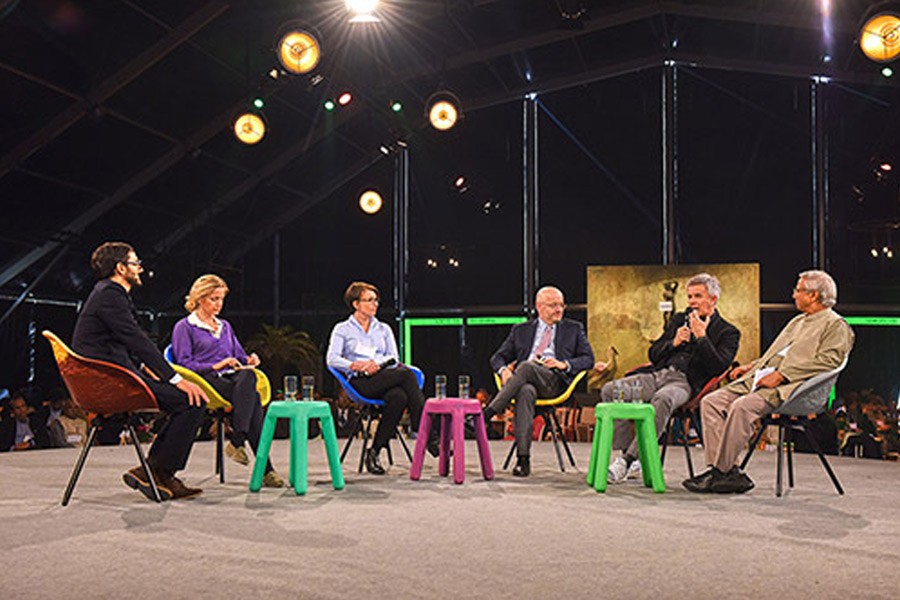Academicians, researchers and activists have stressed the need for mainstreaming social business into different universities of the world as they found it an important and relevant new 'economic theory' which deserves more attention.
They also argued that as the interest in social business in the academic world is growing fast, it is the time to put efforts on mainstreaming it both at undergraduate and postgraduate levels.
They made the observations at the Seventh Social Business Academic Conference on Tuesday in Wolfsburg, a city of Germany popularly known as city of Volkswagen.
The academic conference is an associated event of Ninth Global Social Business Summit.
Nobel laureate Prof Muhammad Yunus, the introducer of the social business theory, opened the academic conference. In his opening speech, he called on the academicians to chart a new course for the world to protect it from upcoming disasters originating from global warming, wealth concentration in limited hands and surge of artificial intelligence.
"If we can't overcome the disaster this century, it will be the last century for human beings," he said. "But we have to prove that human beings can survive and create a new civilisation. It is so urgent."
Prof Yunus was of the view that social business needed to be viewed in the broader context.
"The academic world is now taking interest in social business, some universities are offering bachelor's degree, some are offering minor and some are master's degree," he added.
The two-day academic conference will be followed by the main global summit, scheduled to start on Thursday in Wolfsburg.
Some 150 academics, researchers, activists and students are taking part in the academic conference jointly organised by Yunus Centre and the Grameen Creative Lab in Germany.
Social business is a new kind of business model which calls for doing business to address or fix a social problem, not to maximise profits.
While in a social business, an investor or an entrepreneur will not receive any dividend from the profits generated from the business, but get back his or her return of original investment. The profit has to be reinvested to expand the business.
Prof Cam Donaldson, Pro-Vice-Chancellor of Glasgow Caledonian University, said a well-developed research and training methodology are important to teach the social business concept rightly.
"The academic conference will help to share the experience in this regard," he added in his speech.
The growing interest in social business is also reflected in the gradual expansion of Yunus Social Business Centre (YBSC). Currently, 64 YSBCs in different universities of 28 countries are active and more universities will open the centre.
Lamiya Morshed, executive director of Yunus Centre, said 45 more universities are interested in setting up this centre and 12 are in immediate pipeline.
"The YSBC is essentially a social business hub set up in universities or academic institutions in collaboration with the Yunus Centre to facilitate social business research, and undertake among other things, teaching, knowledge sharing and other action programme towards alleviating poverty or solving other pressing social problems," she added while delivering her introductory remarks on the first day of the academic conference taking place at Autostadt, the headquarters of Volkswagen.
Karla Cronenbold from Universidad Privada Cumbre (A Bolivian private university in Santa Cruz) told the FE that they just opened YSBC and she would go to Bangladesh to take extensive training on social business.
"In Bolivia, there are a lot of social problems and we are struggling hard to fix these problems," she said. "Social business can be an effective tool to address some of the problems. So, we take the decision to make the young people familiar with the concept through academic training," she added.
Idris Jusoh, a former education minister of Malaysia and now adviser to Albukhary International University in Malaysia, is thinking to launch social business course in the university.
"I don't fully believe in the current capitalist system and I think social business concept can provide a better alternative," he added.
In the two-day deliberation, more than 30 papers are going to be presented by researchers while a number of plenary sessions will discuss different dimensions of social business.


